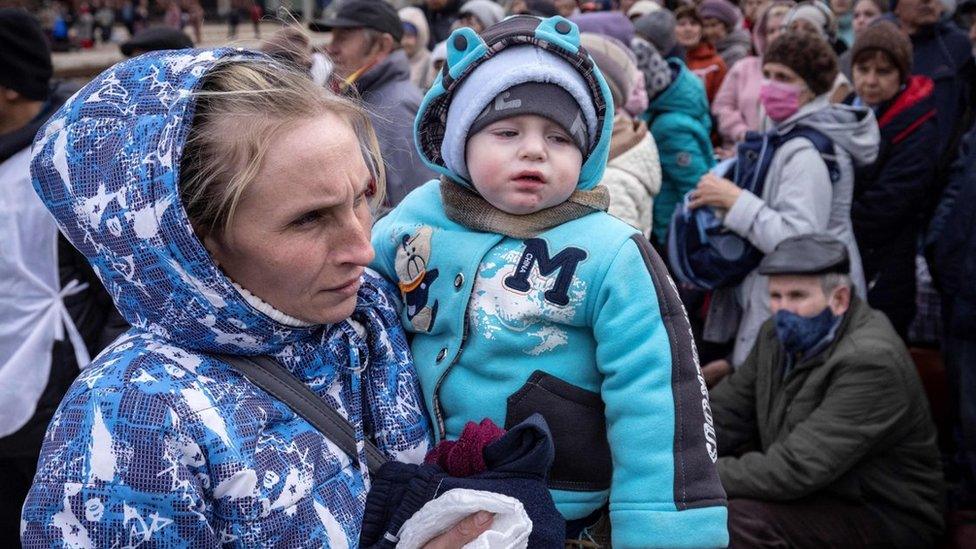Nato: Ukraine asks for 'weapons, weapons, weapons'
- Published
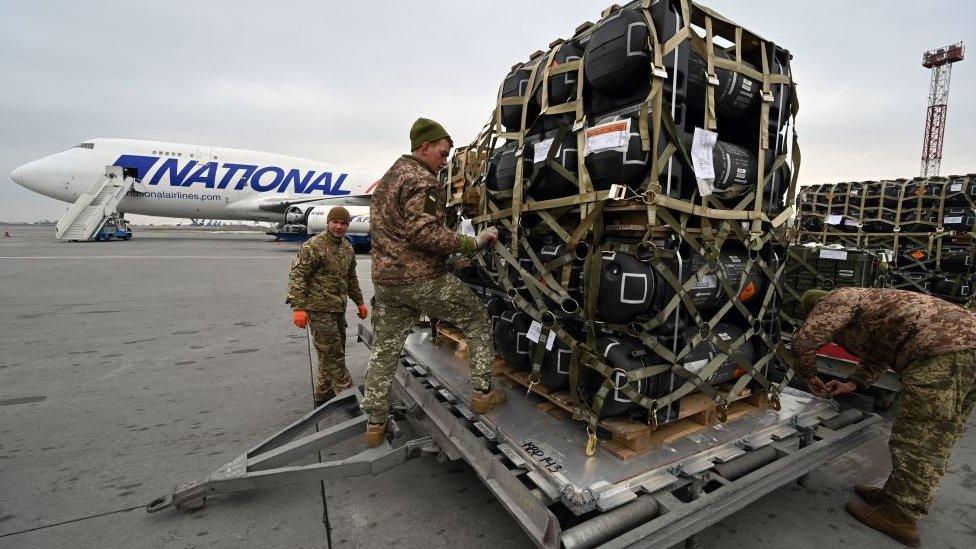
US supplied anti-tank Javelin missiles unloaded in Kyiv in February
Ukraine says it urgently needs more weapons from its Western allies to defend itself against Russia.
Foreign Minister Dmytro Kuleba told a Nato meeting that more atrocities against civilians could happen if Ukraine doesn't get more military aid.
Nato chief Jens Stoltenberg said members of the alliance had agreed more support for Ukraine.
Russia has warned that "pumping weapons into Ukraine" will have a "negative effect" on peace talks.
Mr Kuleba said he was looking for "weapons, weapons and weapons", but he added that Ukraine was offering Nato a "fair deal".
"You provide us with everything that we need, and we will fight for our security but also for your security, so that President Putin will have no chance to test Article 5 of the North Atlantic Treaty," he said.
Article 5 is the key part of the Nato treaty that says that an attack on one Nato country is considered an attack on all.
"Either you help us now - and I'm speaking about days, not weeks, or your help will come too late, and many people will die, many civilians will lose their homes, many villages will be destroyed," Mr Kuleba said.
Ukraine is not a part of Nato but has been receiving military aid from its members.
Allow X content?
This article contains content provided by X. We ask for your permission before anything is loaded, as they may be using cookies and other technologies. You may want to read X’s cookie policy, external and privacy policy, external before accepting. To view this content choose ‘accept and continue’.

Mr Stoltenberg said members of the alliance were prepared to increase support.
"After the invasion, allies stepped up with additional military support, with more military equipment, and it was a clear message from the meeting today that allies should do more and are ready to do more to provide more equipment, and they realise and recognise the urgency," he said.
"We are closely coordinating and discussing these issues with Ukraine, so allies are providing and are willing to do more when it comes to military support."
Over 30 countries including the UK have provided military aid to Ukraine, including €1bn (£800m) from the EU and $1.7bn (£1.3bn) from the US.
So far Western supplies have been limited to arms, ammunition, and defensive equipment like anti-tank and anti-aircraft missile systems.
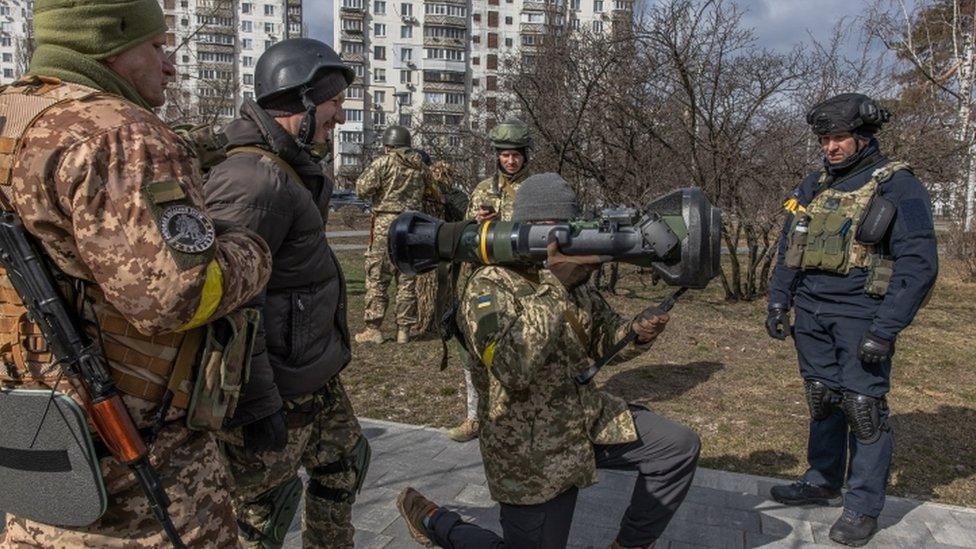
Ukrainian forces being trained in Kyiv to use an NLAW anti-tank missile
Nato members fear that supplying Ukraine with heavier offensive equipment like tanks and fighter jets could lead to direct open conflict between Russia and the alliance.
Russia warned on Thursday that the supply of weapons to Ukraine is harming any prospect of ending the war.
"Pumping weapons into Ukraine will not contribute to the success of Russian-Ukrainian talks," Kremlin spokesperson Dmitry Peskov said, referring to the peace negotiations between the two countries.
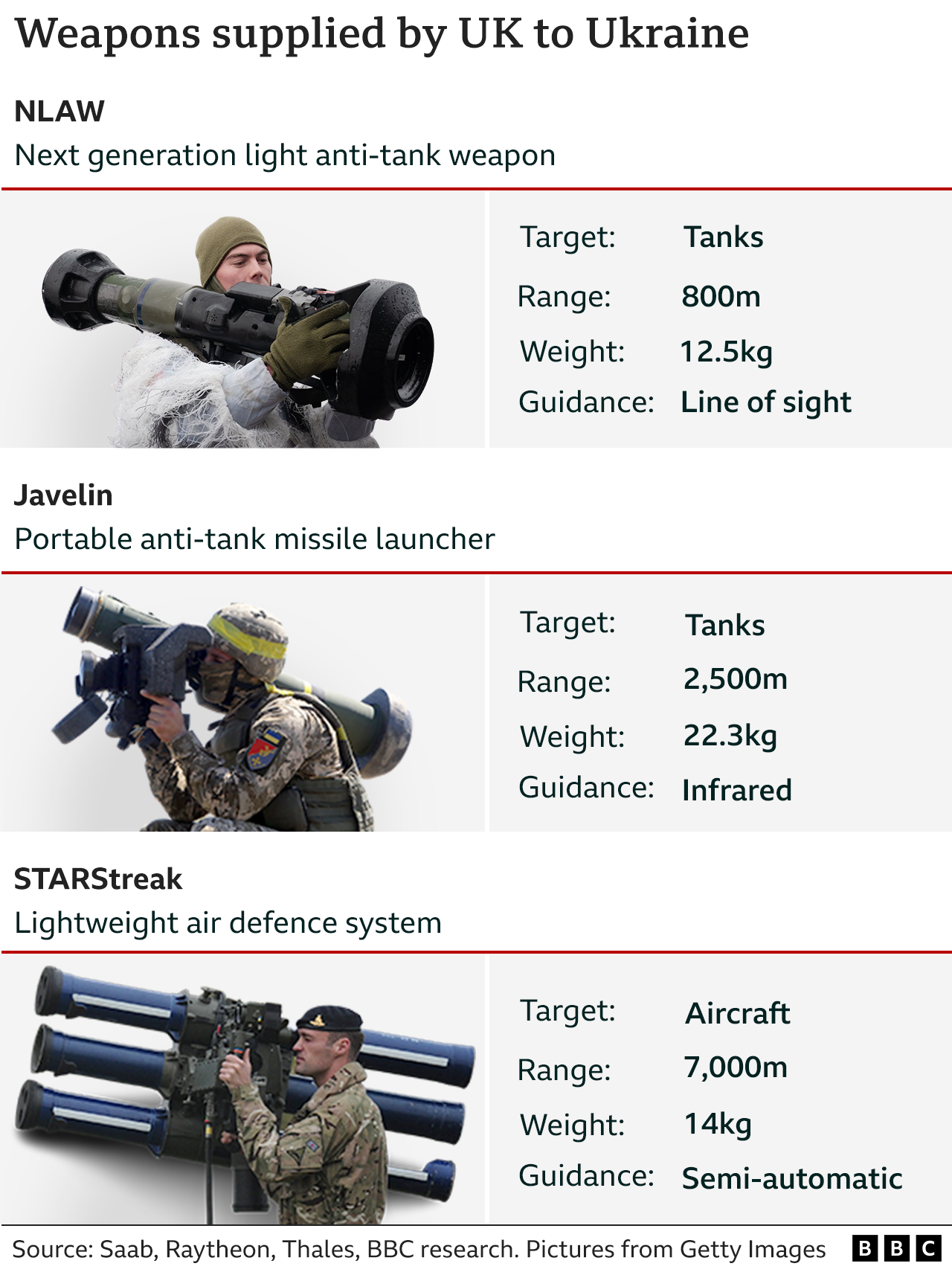
Speaking at Nato's headquarters ahead of Thursday's meeting, UK Foreign Secretary Liz Truss said "in the face of Putin's appalling aggression...we are stepping up our supply of weapons to Ukraine."
Ms Truss is yet to detail what those supplies will include, but the Times newspaper has reported that the UK is preparing to supply Kyiv with armoured vehicles, external.
It comes after reports this week that the Czech Republic is sending Soviet-era tanks to help Ukrainian forces, which if confirmed would make it the first Nato country to do so.

War in Ukraine: More coverage
FRONTLINE: 'Russian soldiers held us as human shields'
PROPAGANDA: Russians hear one voice on war - that of Putin
READ MORE: Full coverage of the crisis, external


Are you or your family affected by the war in Ukraine? Email haveyoursay@bbc.co.uk, external.
Please include a contact number if you are willing to speak to a BBC journalist. You can also get in touch in the following ways:
WhatsApp: +44 7756 165803
Tweet: @BBC_HaveYourSay, external
Please read our terms & conditions and privacy policy
If you are reading this page and can't see the form you will need to visit the mobile version of the BBC website to submit your question or comment or you can email us at HaveYourSay@bbc.co.uk, external. Please include your name, age and location with any submission.
Related topics
- Published7 April 2022
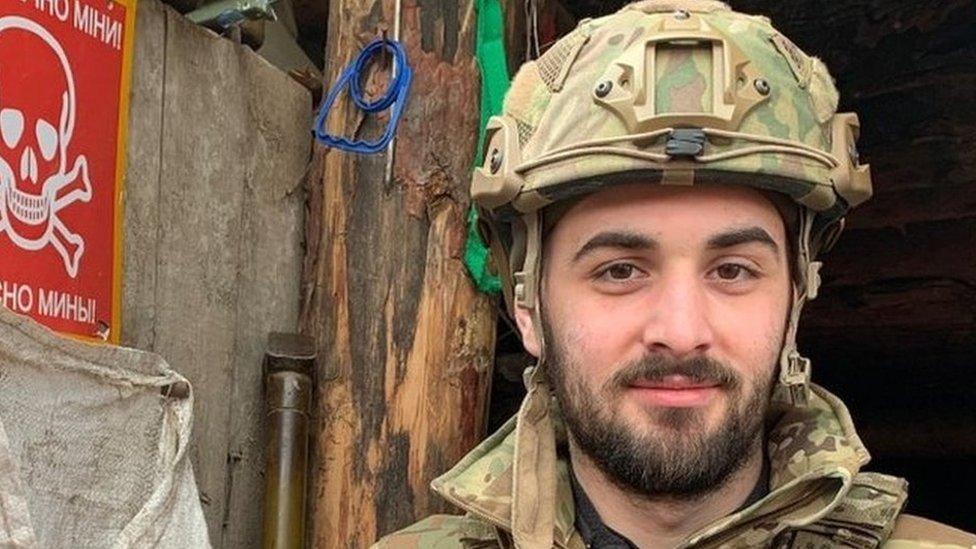
- Published6 April 2022
